Publications
Publications
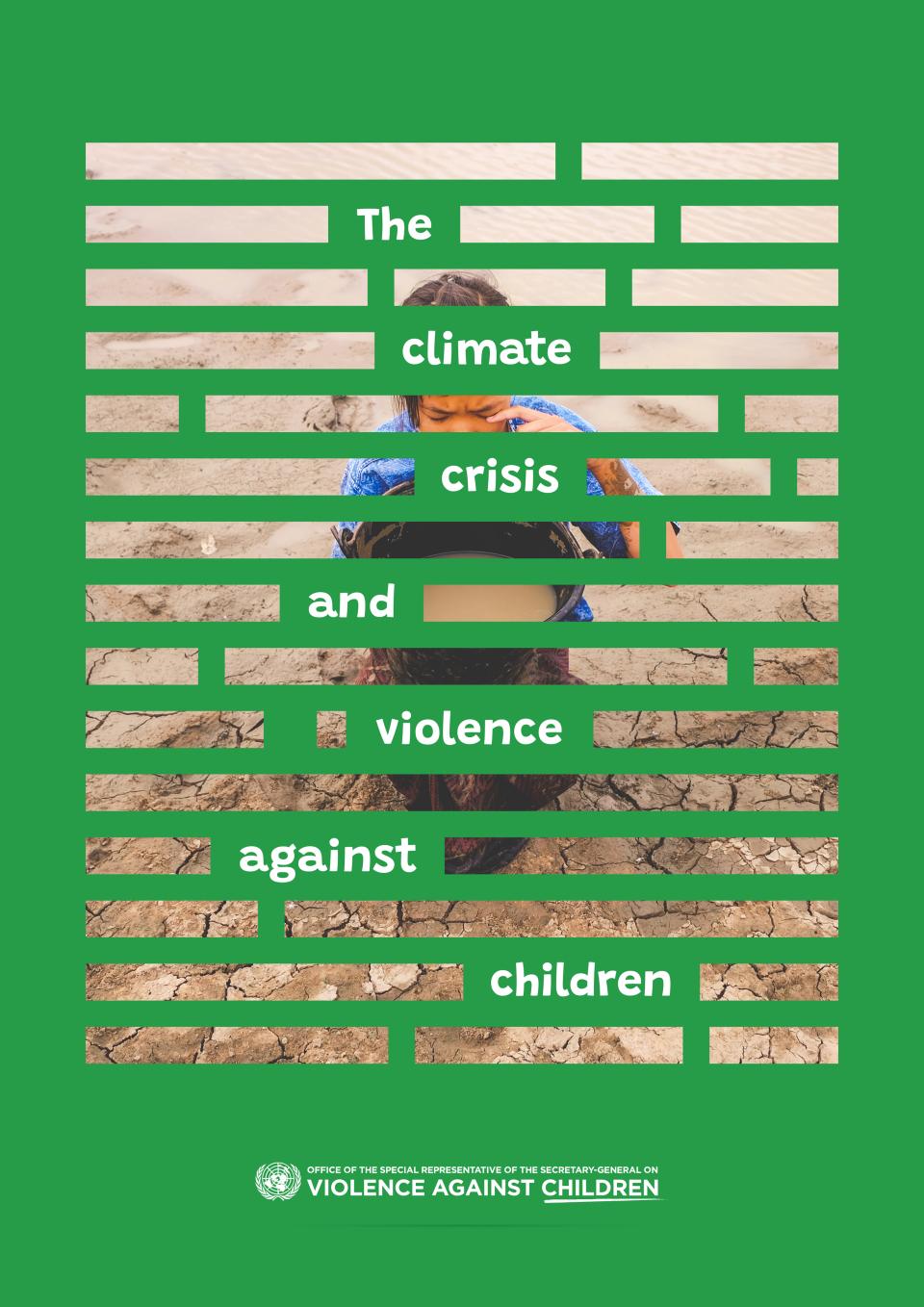 |
The Climate Crisis and Violence against ChildrenThe paper recalls that children – who bear the least responsibility for the climate crisis - are among those hit hardest by its impacts, with around 1 billion of them exposed to its risks. The advocacy brief demonstrates that climate crisis is a ‘threat multiplier’ for violence against children, exacerbating every challenge – from poverty to displacement and loss of education – that enables such violence to thrive. While no child is immune to the combined impact of the climate crisis and violence, that impact falls most heavily on the children who are already the most disadvantaged. |
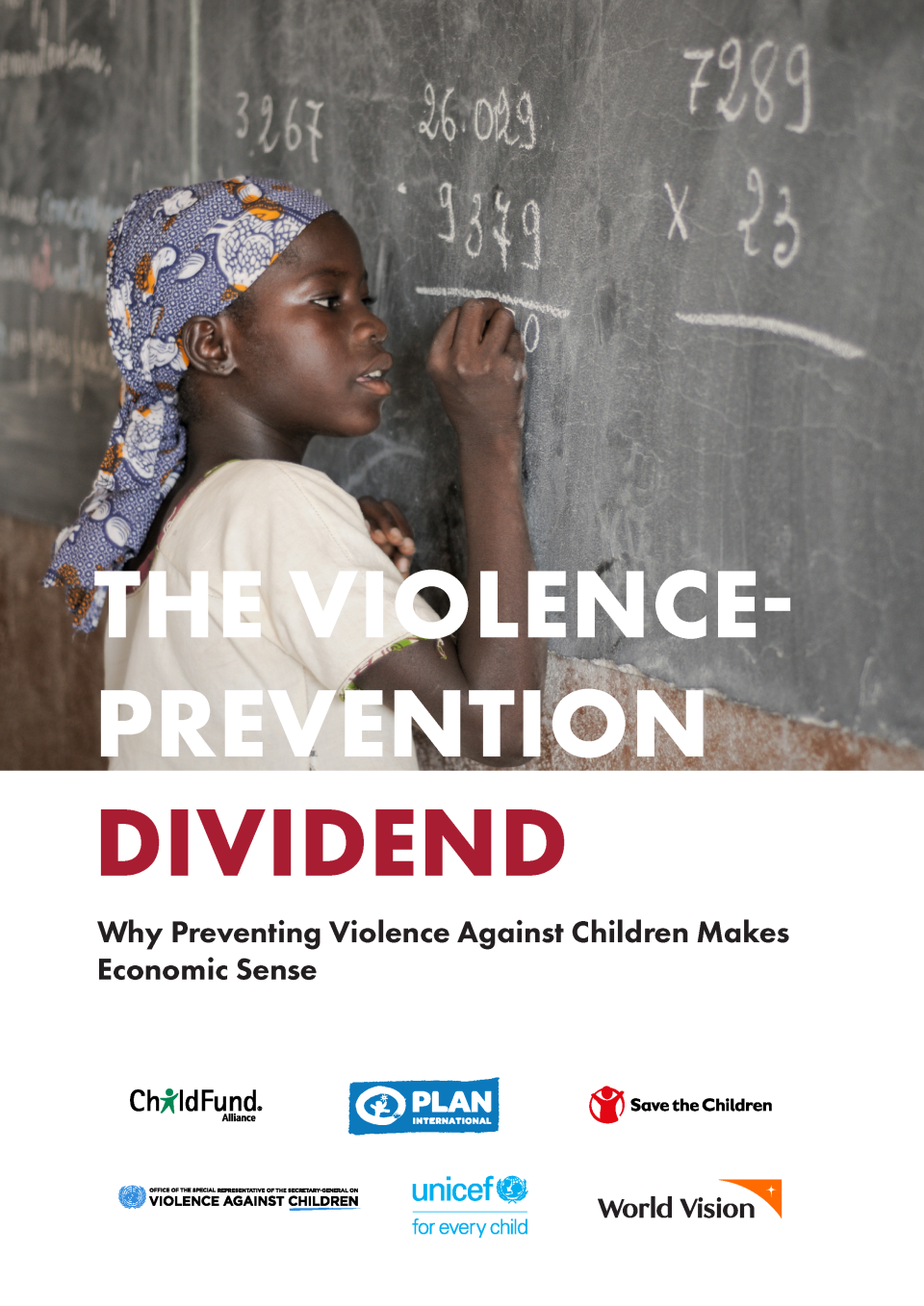 |
The Violence Prevention Dividend - Why Preventing Violence Against Children Makes Economic SenseThis paper gives an overview of the economic case for investing in the prevention of violence against children. It is intended to alert policymakers to the substantial economic and social costs of violence against children and the potential dividend that would accrue from investment in violence prevention. The paper outlines where governments can strengthen and improve engagement in violence prevention in light of post-COVID-19 recovery planning and beyond. |
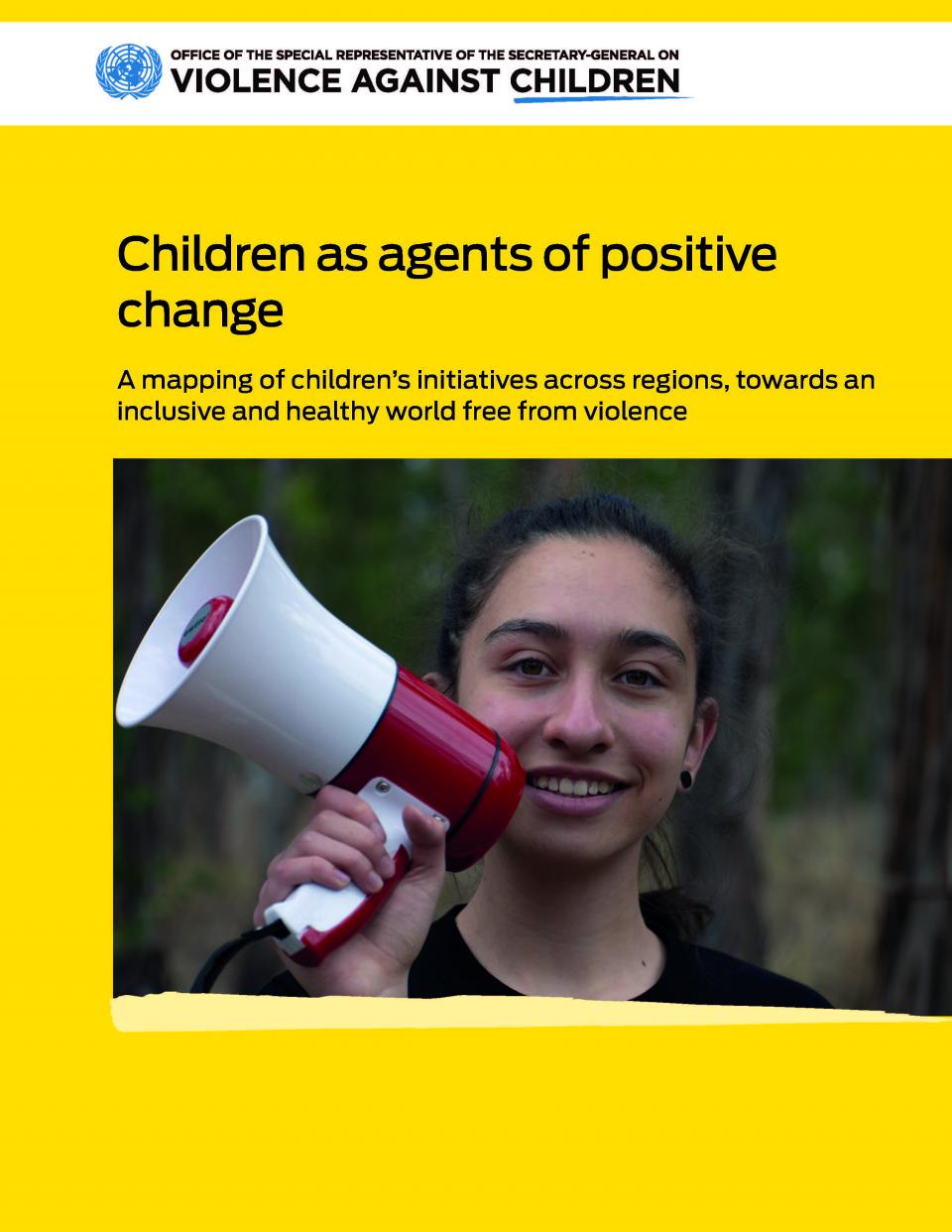 |
Children as agents of positive change. A mapping of children’s initiatives across regions, towards an inclusive and healthy world free from violenceThis report provides an overview of the different actions taken forward by children mostly in times of COVID-19, but not limited to it. It looks at children’s diverse roles when helping to prevent, address, and report violence (including supporting their peers); it helps to understand how children are contributing and being part of the solutions when thinking about building back better, and how children are helping accelerate the fulfillment of the Sustainable Development Goals (SDGs). |
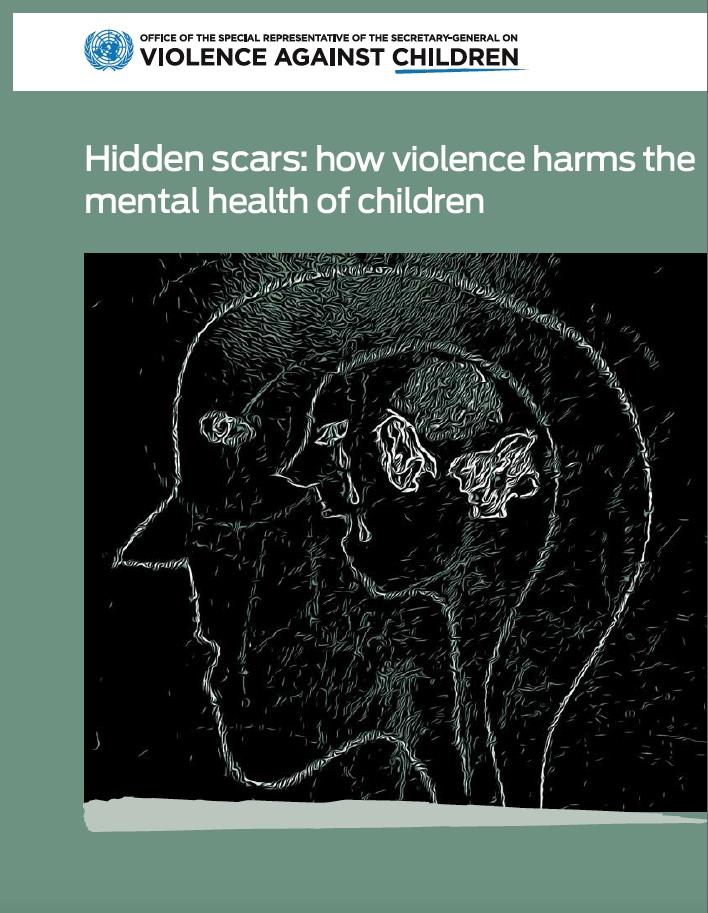 |
Hidden scars: how violence harms the mental health of childrenMore than 1 billion children – half of all children in the world – are exposed to violence every year. It is clear that violence has a severe impact on the mental health of children. Exposure to violence is often traumatic, and it can evoke toxic responses to stress that cause both immediate and long-term physiological and psychological damage. The consequences of violence include depression, post-traumatic stress disorder, borderline personality disorder, anxiety, substance use disorders, sleep and eating disorders, and suicide. |
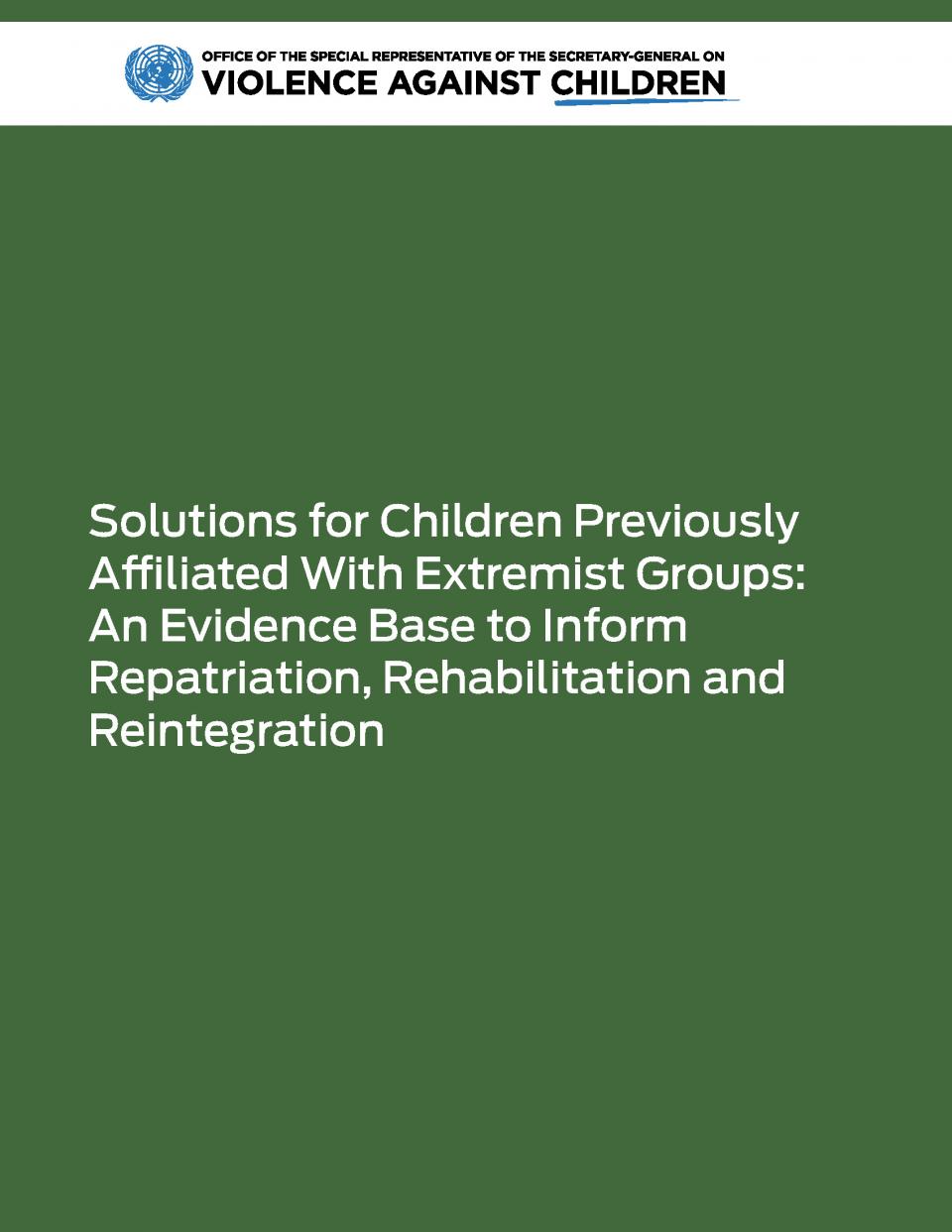 |
Solutions for Children Previously Affiliated With Extremist Groups: An Evidence Base to Inform Repatriation, Rehabilitation and ReintegrationTens of thousands of foreign, Iraqi, and Syrian children are being held in detention on suspected ISIS association or terror-related offenses, or in camps. These children are exposed to violence, due process violations, and family separation. Securing solutions for these children must be pursued in advance or in parallel with efforts to facilitate repatriation. The UN standpoint is that identified children should be repatriated and children born to nationals be granted citizenship. |
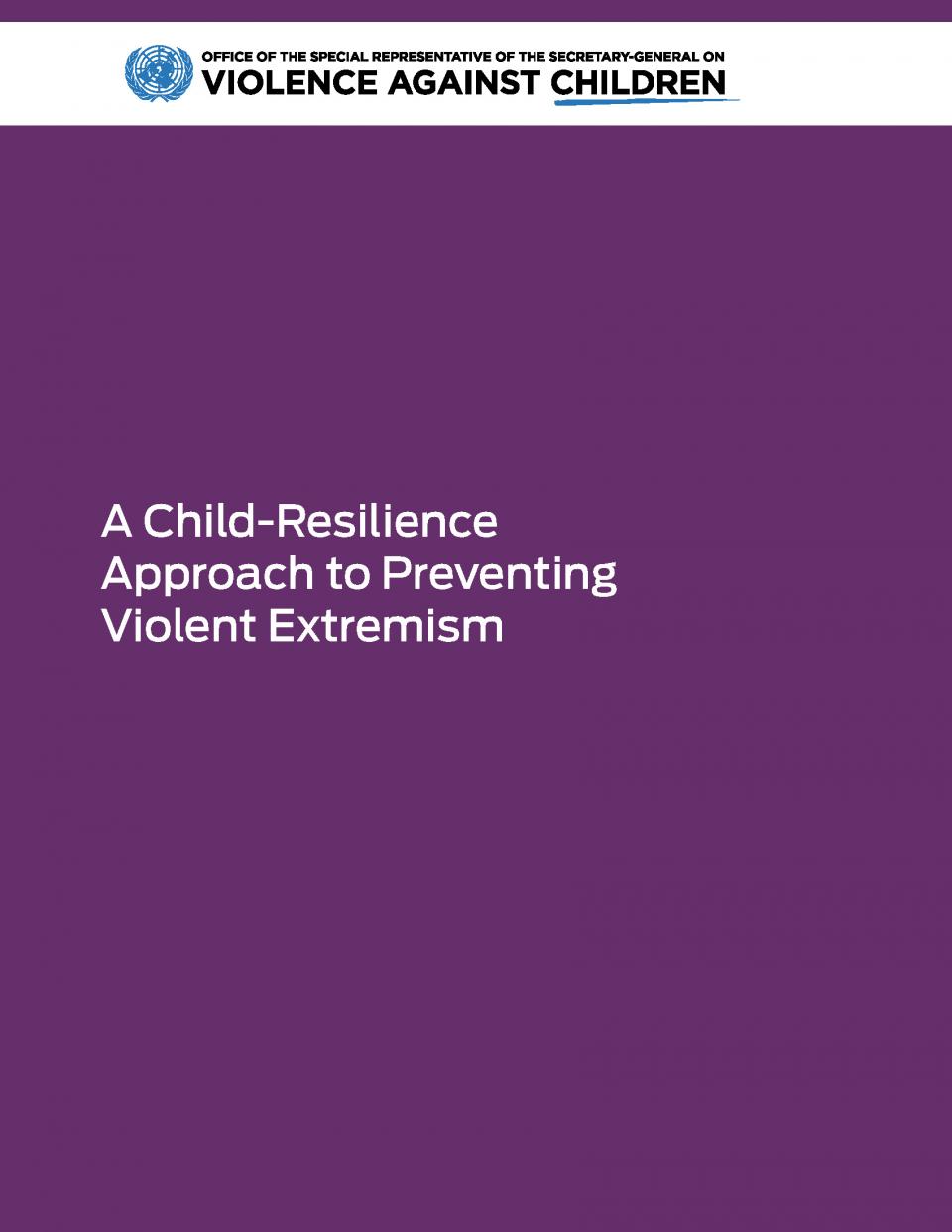 |
A Child-Resilience Approach to Preventing Violent ExtremismThe current discourse on violent extremism focuses largely on young adults, thereby overlooking key drivers, influences, and causal pathways that are specific to children. These include children’s biological tendency towards risk-taking and heightened vulnerability to polarized message content. It is also clear that when children become associated with violent extremist groups, this can reflect an age-specific psychological response to their surroundings or circumstances. |
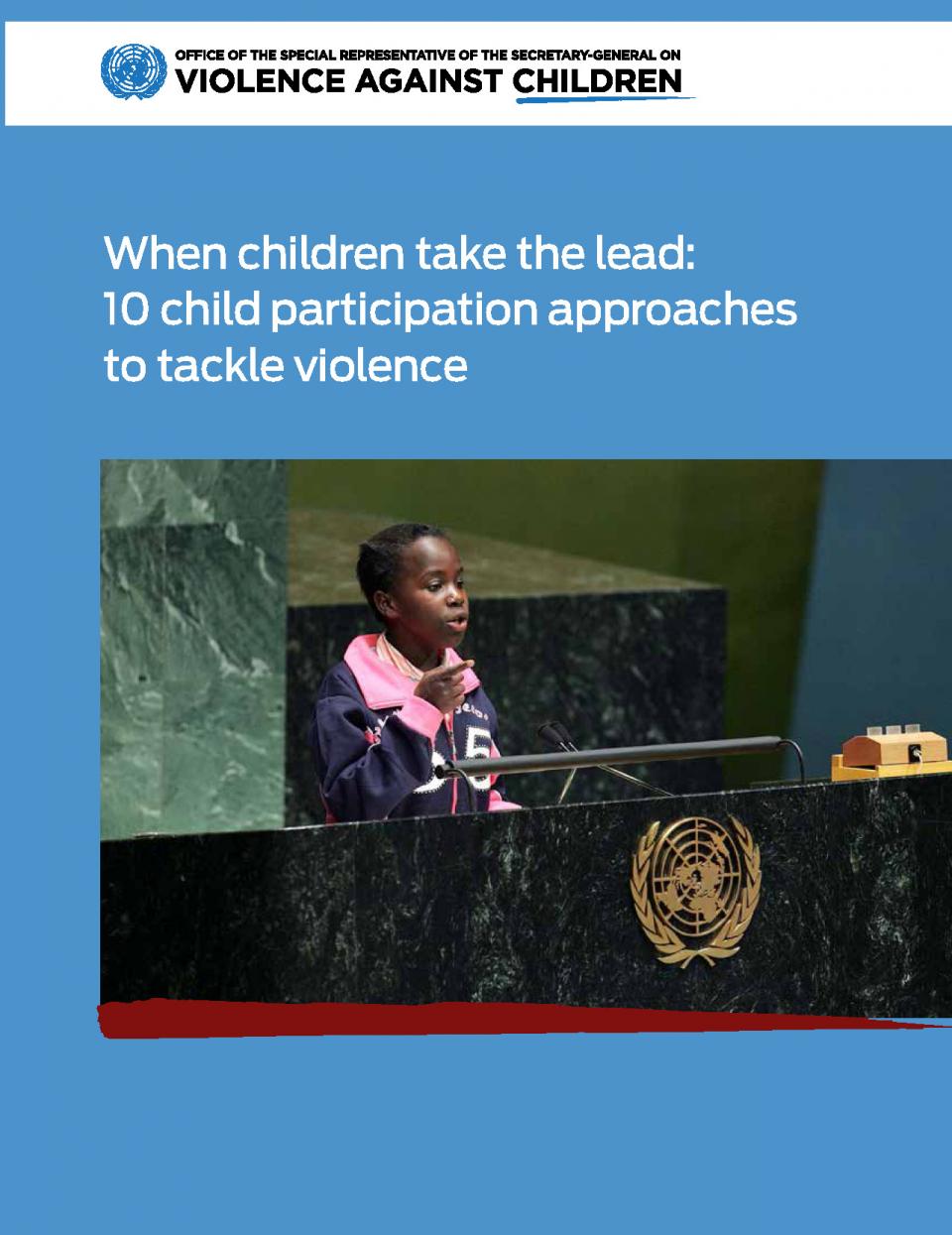 |
When children take the lead: 10 child participation approaches to tackle violenceThis report draws on 10 case studies to examine child participation experiences related to different forms of violence, spanning initiatives driven by governments, international organizations, and civil society. It zooms in on children’s roles, the methods used, the balance between offline and online, and how each initiative has achieved its impact. It identifies common elements that make child participation effective for violence prevention, reporting, and awareness, offering concrete recommendations for children’s rights-based organizations. |
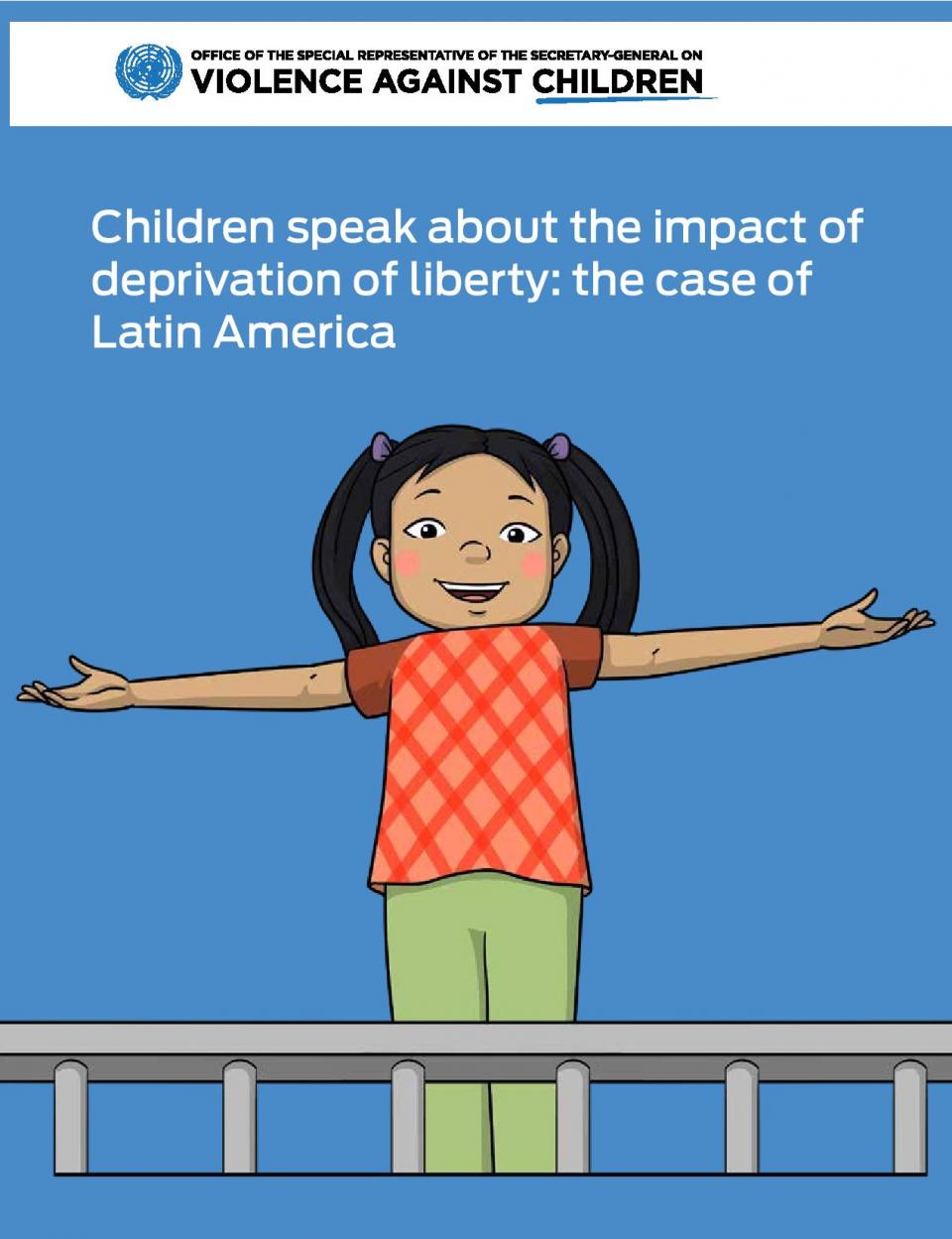 |
Children speak about the impact of deprivation of liberty: the case of Latin AmericaThe risk of violence faced by children affected by deprivation of liberty has been a priority for the Special Representative of the Secretary-General on Violence against Children since the outset of her mandate in 2009. In an effort to shed further light on the impact of deprivation of liberty on the enjoyment of children’s rights, the Special Representative partnered with UNICEF, the Governments of Paraguay and Uruguay, and the Latin American and Caribbean Regional Platform for Children with a Parent deprived of Liberty (NNAPEs Platform) to document the views and experiences of children affected by the deprivation of liberty. |
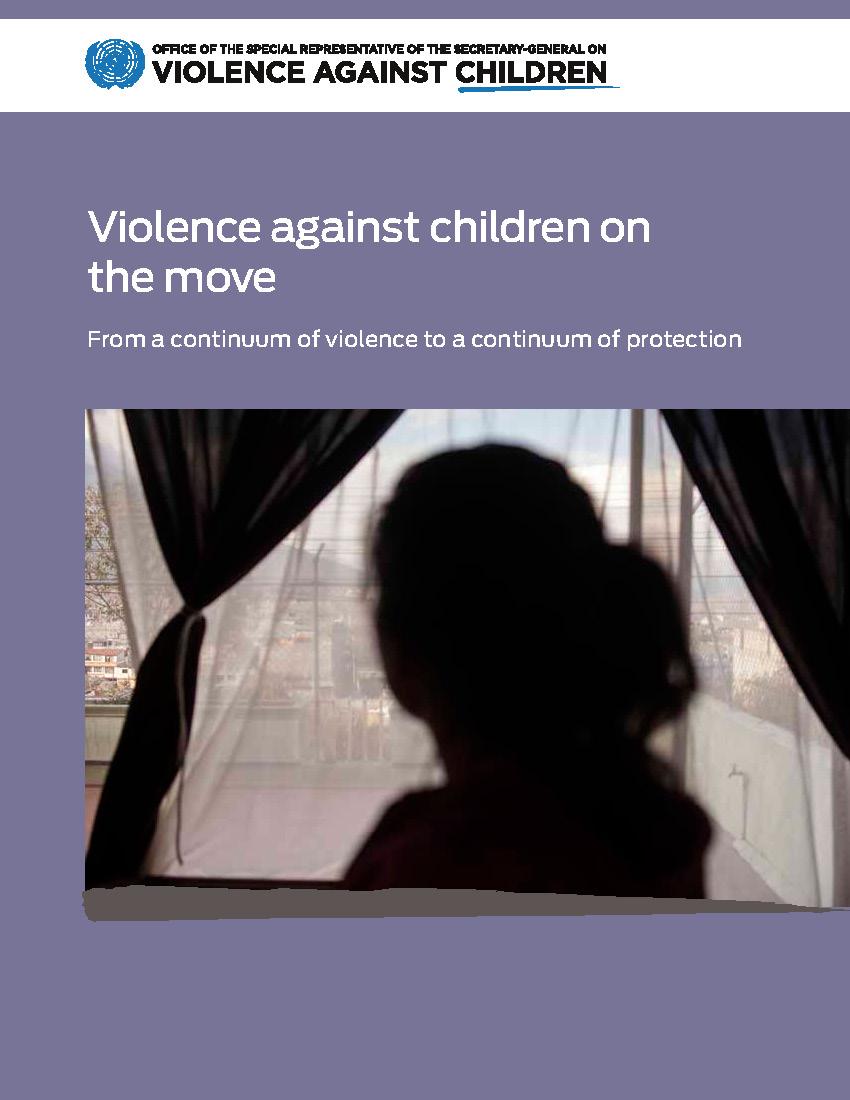 |
Violence against children on the move - From a continuum of violence to a continuum of protectionEvery minute, 20 people – many of them children – are forced from their homes by violence, persecution, or conflict. While children account for less than one-third of the global population, they make up more than half of today’s refugees worldwide. Recent years have seen growing numbers of children and adolescents on the move, alone or with their families, within and across countries. Some may move by choice, aiming to learn new skills and make good use of their talents, improve their education, or explore new options – often in the world’s growing cities – to reach their full potential |
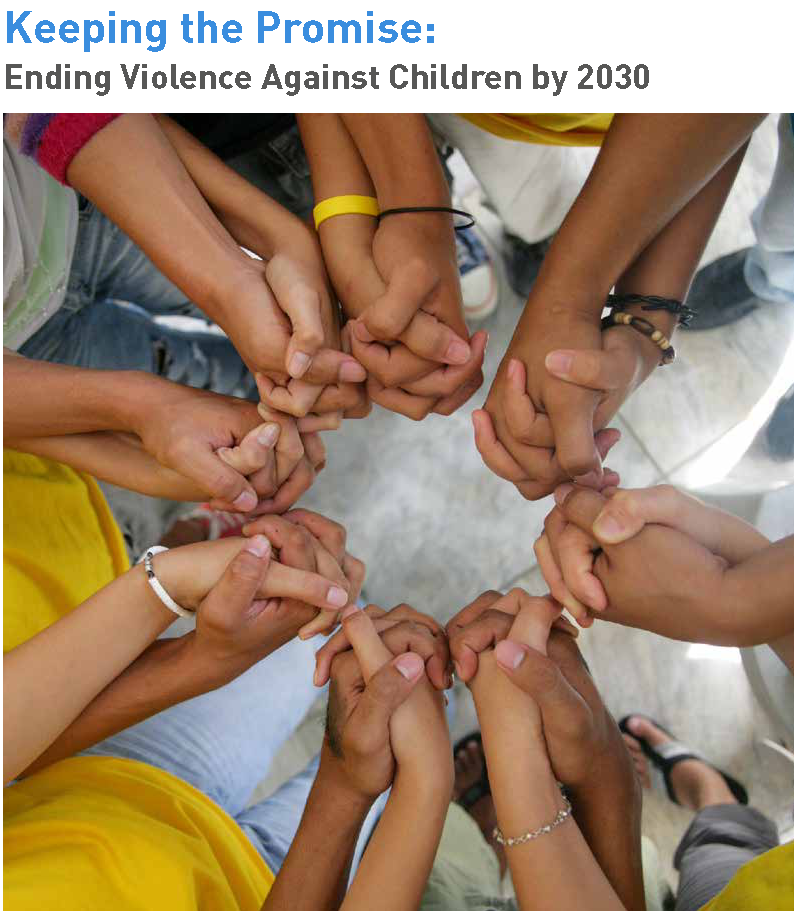 |
Keeping the promise: ending violence against children by 2030This report aims to help us keep that promise to children. It documents what has been achieved to date through collective action, reminds us of the prevalence and nature of violence, sets out the evidence on solutions, and charts a course for accelerated progress. Violence against children is widespread and pervasive but is not inevitable! By placing children at the heart of the 2030 Agenda, and at the centre of all we do, we can realize its noble vision of a world free from fear and violence for all. From foreword by the Secretary-General of the United Nations, António Guterres Download the publication |

